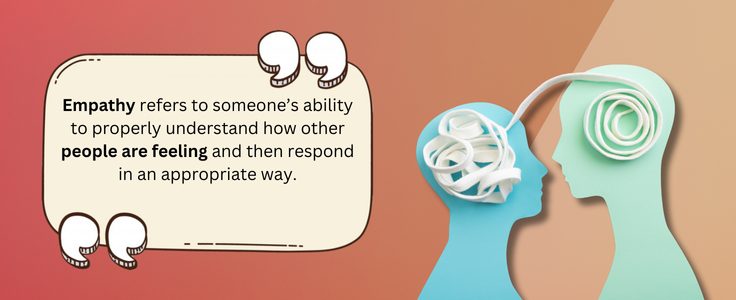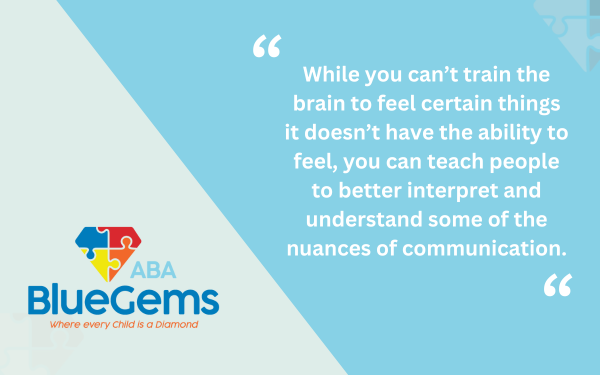Do People with Autism Feel Empathy?
People with autism spectrum disorder (ASD) are often misunderstood. Much of this comes from the challenges they face with communication and social interactions.
Others may think that a person with autism, for instance, is stand-offish, a loner and just not interested in what they have to say or who they are. The reality, though, may be that the person with ASD may just not know how to properly express themselves or may prefer to spend time alone because they feel anxious or overwhelmed in certain situations.
Thanks to advanced scientific research, a lot of knowledge and information has been gained about how autism affects people. However, there’s still much that is misunderstood about people with ASD.
Some people, for example, may question whether people with autism feel empathy. We’ll discuss that topic below.
Table Of Contents
What Exactly is Empathy?
It’s first important to understand exactly what empathy is. Empathy refers to someone’s ability to properly understand how other people are feeling and then respond in an appropriate way.
When you display empathy, you are, in essence, putting yourself in the shoe’s of another person so that you can better understand what they are going through and why they may be feeling or acting as they are.

Empathy could be understanding why someone else might be angry, being able to relate to them if they’re having a tough day or feeling genuinely excited for someone else if they get good news.
By displaying empathy, you are showing someone else that you truly care about them in all ways.
Do People with Autism Feel Empathy?
Over the years, research about whether people with autism feel empathy has evolved quite substantially. It was originally believed that all people with ASD lacked empathy.
However, more recent research has suggested that, just like autism itself, the degrees to which people with ASD feel empathy can span a wide spectrum.
It’s well known that the autistic brain operates differently than the brain of neurotypical individuals. The way they feel empathy can also be affected by their autism.
Some people who have more severe forms of autism might not have the ability to truly be empathetic, since they might struggle with understanding someone else’s emotions.
That being said, some people on the autism spectrum may just appear as though they aren’t empathetic, when in reality, they might not just respond in “typical” ways.
How Do the Different Types of Empathy Apply to People with Autism?
There are two different types of empathy.
Cognitive empathy refers to the ability for one to recognize the emotional state of another. Affective empathy, meanwhile, refers to the ability to feel the emotional state of another person and then have a desire to respond to that state.
A study conducted in 2018 found people on the autism spectrum might have deficits in cognitive empathy while not showing deficiencies in affective empathy.
So, how does this present itself in the real world?
A person with autism might see another person struggling to figure out how to open a door since their hands are full but not understand that they could use help opening the door.
At the same time, they might see this person expressing frustration and anger at the situation and ask them why they are feeling that way and what they can do about it.
Can People with Autism Learn to Feel Empathy?
While you can’t train the brain to feel certain things it doesn’t have the ability to feel, you can teach people to better interpret and understand some of the nuances of communication.

As mentioned, a big barrier to people with ASD showing empathy is they often misinterpret or don’t fully understand non-verbal cues such as body language, expressions or tone of voice. These aspects of communication can be taught, and applied behavior analysis, or ABA therapy, is the leading treatment to help do so.
Through ABA therapy, people on the autism spectrum can build the communication and social interaction skills, which can help them better identify other people’s emotions. Then, they will be better equipped to show how empathetic they are by helping a person open the door if their hands are full, for example.
Blue Gems ABA Supports Children with Autism
People with autism feel empathy, but they may not experience it in the same ways that neurotypical individuals do. In addition, they may have trouble expressing their empathy even if they are feeling it.
At Blue Gems ABA, we work hands-on with children who have autism, helping them build communication, social interaction and daily life skills they commonly struggle with. We create personalized ABA therapy plans that are crafted with each individual patient’s unique strengths and challenges in mind, which makes the treatment more effective.
To learn more, please contact us today.




